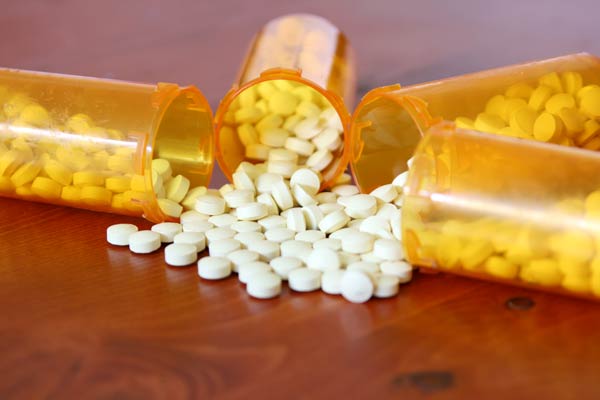In the last decade, pharmacologists and medical organizations have researched an opioid pain medication that is called Tramadol. Tramadol was initially developed in Germany in the 1960s and was approved for use in the United States in 1995. It is considered an opioid pain medication, but one that is recognized as having less potential for abuse or addiction compared to other stronger opioids such as hydrocodone or oxycodone. Tramadol is often prescribed to people who require opioid pain medication but are also prone to addiction because it’s thought to be a safer alternative than traditional prescription opioids.
What is Tramadol? How Does Tramadol Work?
Tramadol is prescribed over other opioid pain medications because it does not directly bind to opioid receptors in the brain like morphine and others. However, comparatively 100 mg of Tramadol equals 10 mg of morphine. The idea that it is a weaker and less addictive opioid is, therefore, misunderstood. The research that has been completed on Tramadol is varied. Some studies found Tramadol useful for treating anorexia, premature ejaculation, restless leg syndrome, and depression. Because Tramadol works in the same manner as the antidepressant Effexor with selective serotonin reuptake inhibitors (SSRIs), studies on its effectiveness for various diseases have received credible findings. There is potential for Tramadol to effectively treat anorexia, among many other off-label uses. Because this drug can possibly treat so many medical conditions besides just it’s standard opioid-based treatment application for pain management, research is on-going in all these areas. In the future, Tramadol may be approved by the FDA to officially treat other conditions and diseases besides just chronic pain. The National Center for Biotechnology Information even explained that Tramadol is used off-label for premature ejaculation and restless leg syndrome, among other medical conditions.
Tramadol Is an Opioid With Antidepressant Properties
However, the findings and research on Tramadol as an effective antidepressant have received by the most attention. Numerous medical scientists and researchers have validated that Tramadol does act similarly to the antidepressant Effexor. One study that was published by the American Psychological Association, in their journal on Experimental and Clinical Psychopharmacology from 2011, addressed the topic of “Examining the Use of Tramadol Hydrochloride as an Antidepressant.” The article explains how Tramadol causes Antinociception, which is the reduced sensation of pain and why Tramadol also acts as an antidepressant. According to the American Psychological Association:
Tramadol is a centrally acting synthetic opioid with analgesic efficacy comparable to codeine. Antinociception is attributed to a low but effective affinity for the mu-opioid receptor (μ), as well as a reuptake of norepinephrine (NE) and serotonin (5HT) in many dual-action antidepressants. Most notably venlafaxine (Effexor), which Tramadol is closely related to in structure. Tramadol also inhibits norepinephrine and serotonin reuptake. These medications are proven effective antidepressants, and this shared monoaminergic action and resulted in the research of Tramadol as a potential treatment for depression. (APA)
Therefore, Tramadol has plenty of antidepressant properties because it acts on the reuptake of norepinephrine and serotonin just like many classical SSRIs, although it’s not an SSRI in a true sense. Tramadol is closer to an opioid than an antidepressant, and it is labeled for uses related to treating severe or chronic pain.
Tramadol: Antidepressant or Opioid?
Since Tramadol behaves like an antidepressant and an opioid, which one is it? Tramadol is prescribed for reducing pain from surgeries and other mild to moderate pain conditions. Tramadol is not currently prescribed to treat depression, but that may change. Currently, Tramadol has been gaining attention for the treatment of depression. However, it is still only approved for use as a pain reliever. The Federal Drug Administration only approves Tramadol for treating pain. Unless the FDA approves Tramadol for other medical purposes, it cannot legally be prescribed for depression. Still, it can be specified as an off-label medication. According to the Federal Drug Administration:
Tramadol is a specific type of narcotic medicine called an opioid that is approved to treat moderate to moderately severe pain in adults. It is available under the brand names Ultram, Ultram ER, Conzip, and also as generics. Tramadol is also available in combination with the pain reliever acetaminophen under the brand name Ultracet and as generics. (FDA)
Off-label uses of drugs are very common and are perfectly legal. The European Journal of Pharmacology explains how common off label drugs are used to treat depression and that it is acceptable among medical doctors and psychiatrists even without FDA approval. According to the European Journal of Pharmacology:
The prescription of drugs for depression is rising rapidly. One of the reasons for this trend is its many off-label uses. Up to one-third of all prescriptions for depression are for non-indicated use. Pharmaceutical companies are not allowed to promote a drug for a use that is not approved by the appropriate agency such as the U.S. Food and Drug Administration (FDA) or the European Medicines Agency (EMA). However, it is legal to inform about studies that show positive results in off-label applications, and it is also legal for a physician to prescribe a medication for off-label use. (EJP)
Conclusion on the Pharmacology of Tramadol
Essentially at the end of the day, Tramadol is an opioid-based drug that also has antidepressant properties. It can be abused, and someone can become addicted. The fact that Tramadol has a widespread reputation for being less addictive is simply untrue. It stimulates the brain’s opioid receptors and can affect someone the same way that heroin or other prescription pain killers do that contain opiates. Tramadol can cause dependence and addiction, just like other opioids. Even with numerous clinical studies that prove Tramadol behaves in the same manner as the antidepressant Effexor and others, it is not yet approved as a legitimate drug to treat depression. If you or a loved one are dependent on Tramadol, we can help you safely get off this addictive drug. Reach out for assistance and call our confidential helpline around the clock.


